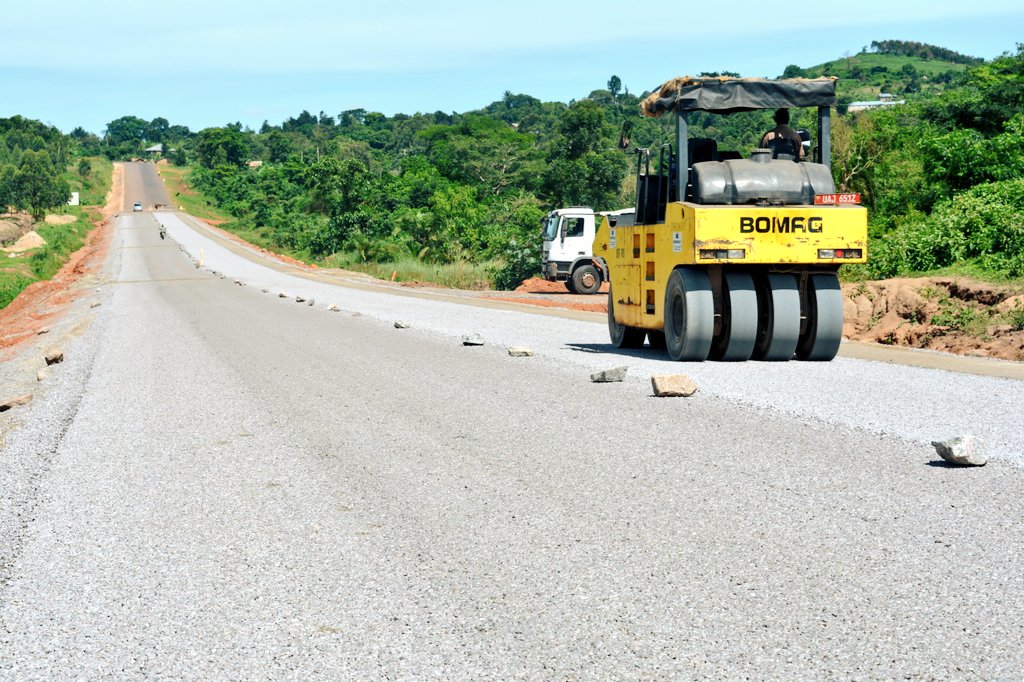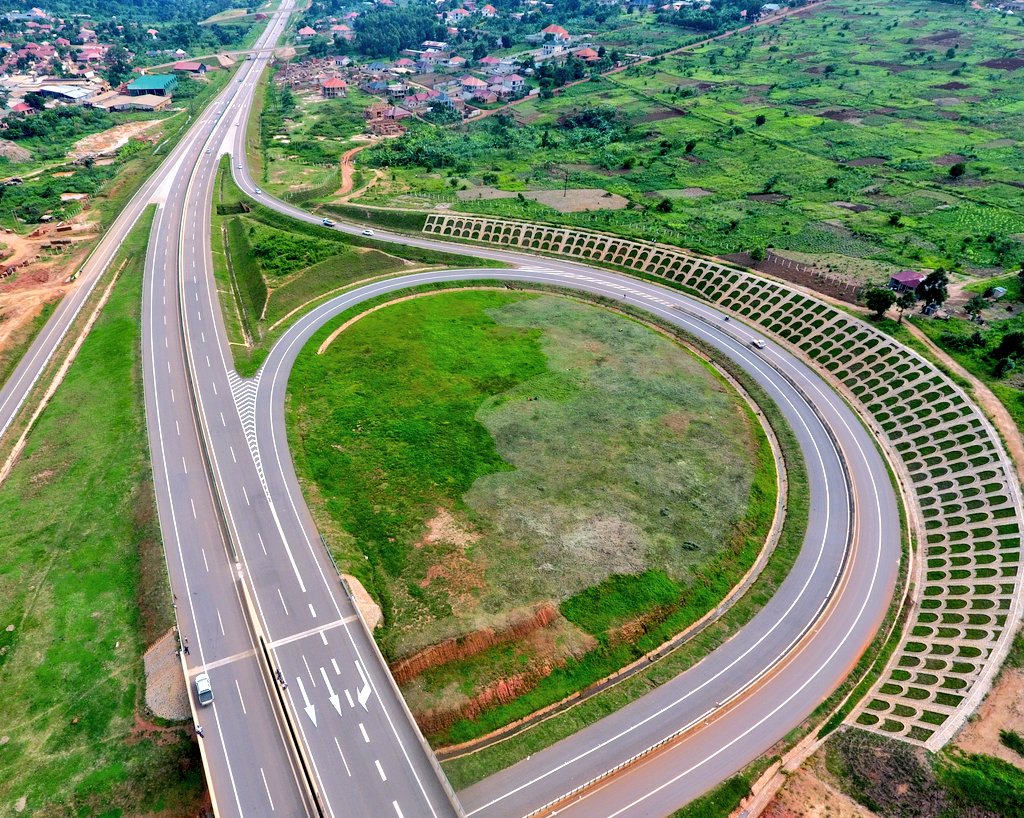Few weeks ago, during the Manifesto Week, the respective agencies and Ministries of government gave accountability to the public regarding what their targets in the five-year commitments by President Yoweri Museveni in 2016 were and how much has been achieved in the first two years.
This way, government can evaluate whether it is on track to have all its pledges to Ugandans accomplished by 2021 and what bottlenecks require to be addressed.
But among the sectors that have made significant progress is that of transport. It is perhaps little wonder, given that in the last decade or so, President Yoweri Museveni has set out to prioritize road infrastructure projects which he says is critical if the country is to realize its economic aspirations, among them getting Uganda into the lower middle income status by 2020.
Among other factors, the success of the President’s infrastructural ambitions depends on the perfomance of Uganda National Roads Authority (UNRA), the agency mandated with constructing and maintaining Uganda’s road network.
During the Manifesto Week, the Minister of Works and Transport, Eng Monicah Ntege Azuba revealed that a total of 7 paved road projects have been completed in the last two years. In the financial year 2015/16, 238 kilometers were added to the road network while 100 kilometers were added in 2016/17 and 432 kilometers in the current 2017/18 financial year. She said that government is at the moment working on 22 roads with a total length of 1,400 kilometers.
In the next financial year, 2018/19, 6 roads are due to be constructed and for all the 6, procurement for contractors has been completed. These include 662 kilometers of the so-called ‘Oil Roads’ that will give way to the oil rich Albertine region in Western Uganda. Out of the 662 kilometers of the oil roads, contracts for 363 kilometers have already been awarded, the Minister said.
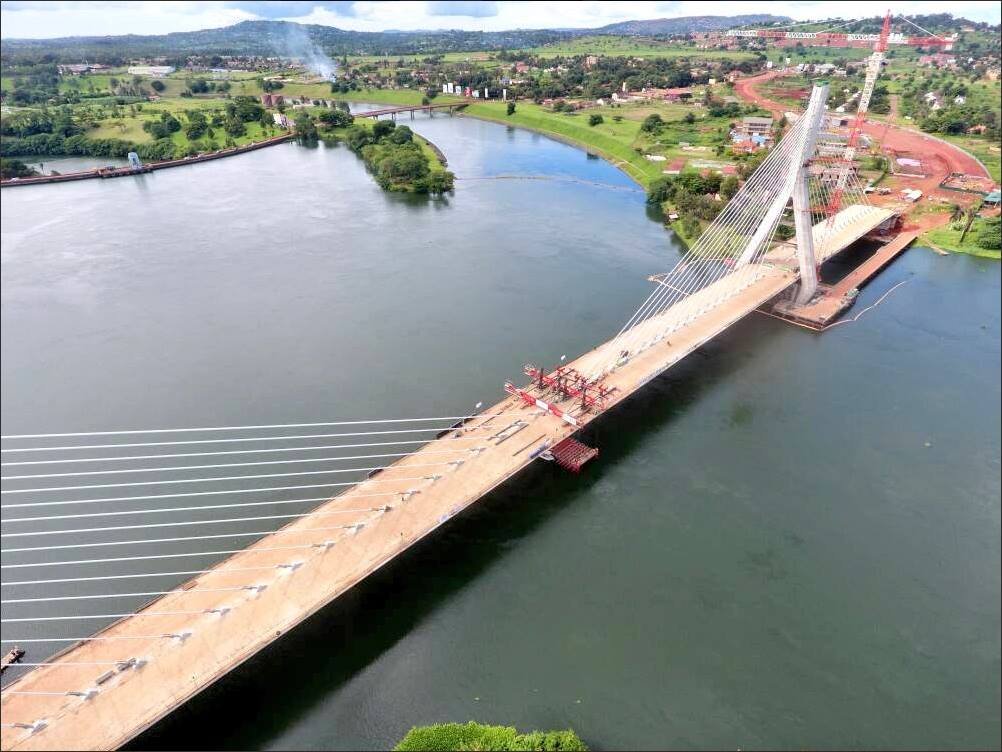
Coincidentally, it is about the same period (when the 2016 Manifesto came into effect) that UNRA had been undergoing restructuring following the appointment of Allen Kagina as the Authority’s Execute Director in April 2015.
Kagina, the former Uganda Revenue Authority (URA) Commissioner General was appointed by the President to preside over UNRA at the period when it was bedeviled with deeply entrenched corruption resulting into loss of trillions of government revenue, shoddy works, ghost contracts, delays in construction of roads, botched procurement processes and wide ranging inefficiencies.
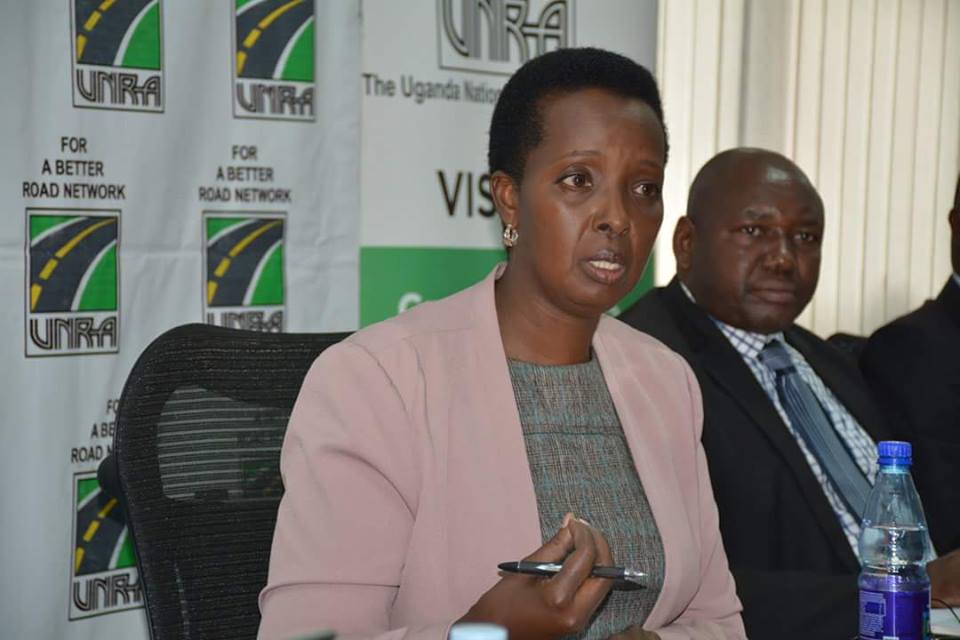
A Commission of Inquiry into UNRA had unearthed the rot at the road’s Authority and incriminated almost the entire leadership from the Executive Director to the station managers who had swindled huge chunks of money and frustrated works.
It is this level of dysfunctionality that Kagina had inherited. Accordingly, the first task she embarked on was to undertake a major restructuring at the entity by making changes in the human resource but also streamlining systems and procedures so as to reintroduce efficiency at one of the highly funded government entities.
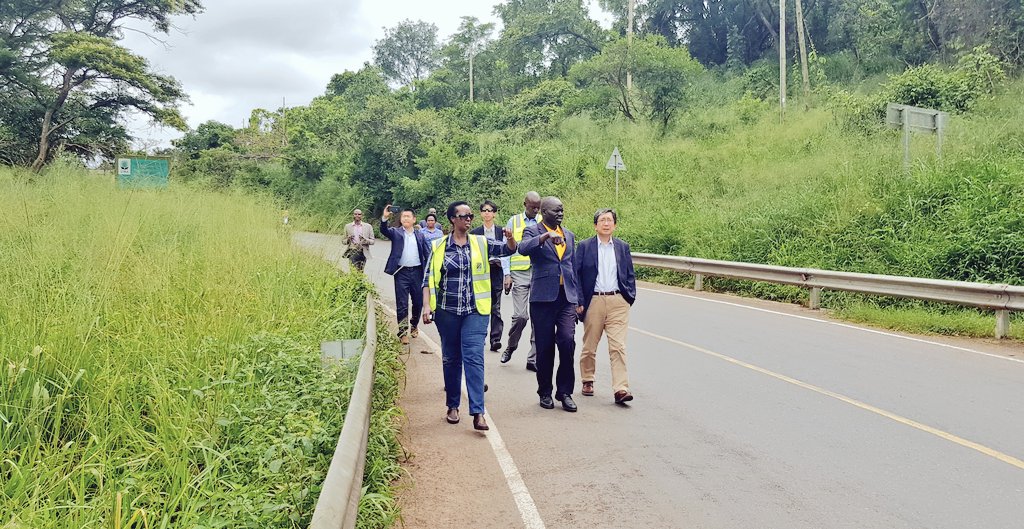
Since then, remarkable transformation has been realized not only in terms of the new roads and bridges that have been added to the network, but also the mechanisms that have been put in place to enhance better service delivery.
Seven (7) road projects have substantially been completed in the past two (2) financial years, having been upgraded from murram (gravel) to tarmac (paved).
These roads include: Ntungamo – Katuna Lot III, Atiak-Nimule, Bundibugyo/Nyahuka town roads, Hoima – Kaiso – Tonya, Moroto – Nakapiripirit, Ishaka -Kagamba and the access road to Sungira Hi.
By the end of June this financial year, roads like Mbarara Bypass Lot 1 (41kms), Kampala Entebbe Express way (51kms), Acholibur – Musingo (86kms), Mukono – Kyetume – Katotsi – Nyenga (74kms) and Kamwenge – Fort Portal (66kms) will be completed among others.
The kilometer equivalence of all paved roads grew by 593.67km between June 2015 and June 2017. The total equivalence of paved roads (new tarmac) experience including 275.56km of rehabilitated roads is 869.23Km in the past two financial years. In 2017/18 alone, about 390kms have been completed.
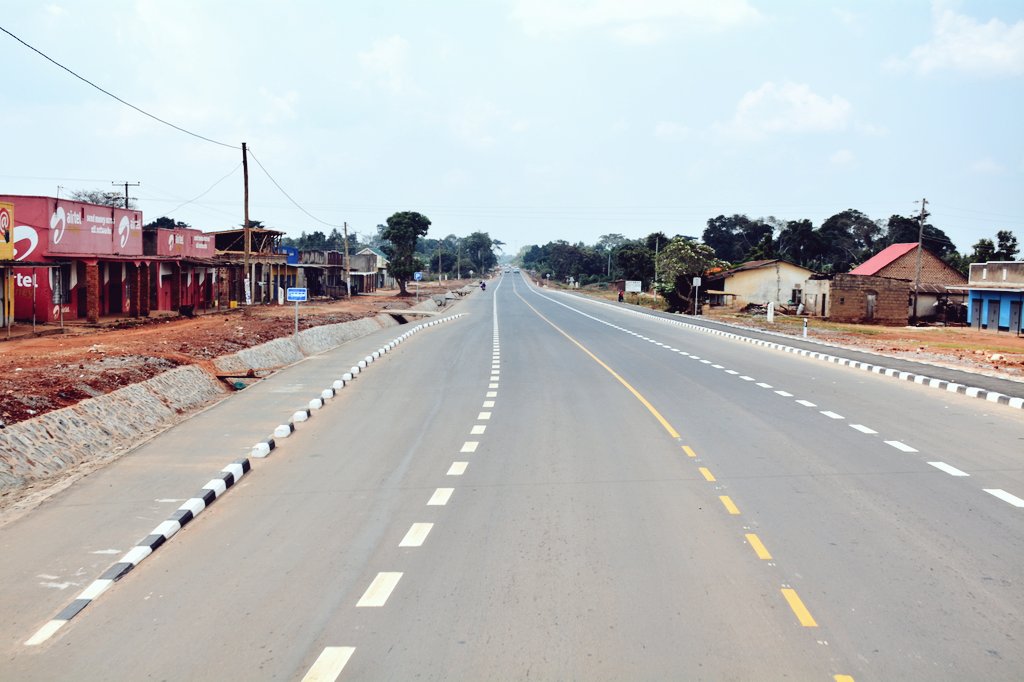
This is in comparison to the two years leading to Kagina’s appointment, where a total of 523 kilometers of paved roads had been constructed, 271 kms in 2013/14 and 252 kms in 2014/15. The relatively low portfolio of works at the time was attributed to procurement delays often resulting from numerous contract reviews.
Boosting in-house capacity
One of the biggest achievements that UNRA has registered in the last three years has been its ability to enhance its capacity to execute a significant percentage of the work using internal staff and resources. This has saved government billions of Shillings which were previously paid for outsourced service providers.
Supervision of all the 204 kilometers of the rehabilitated roads was done using UNRA staff representing a major milestone of internally supervising 23% of paved roads experience.
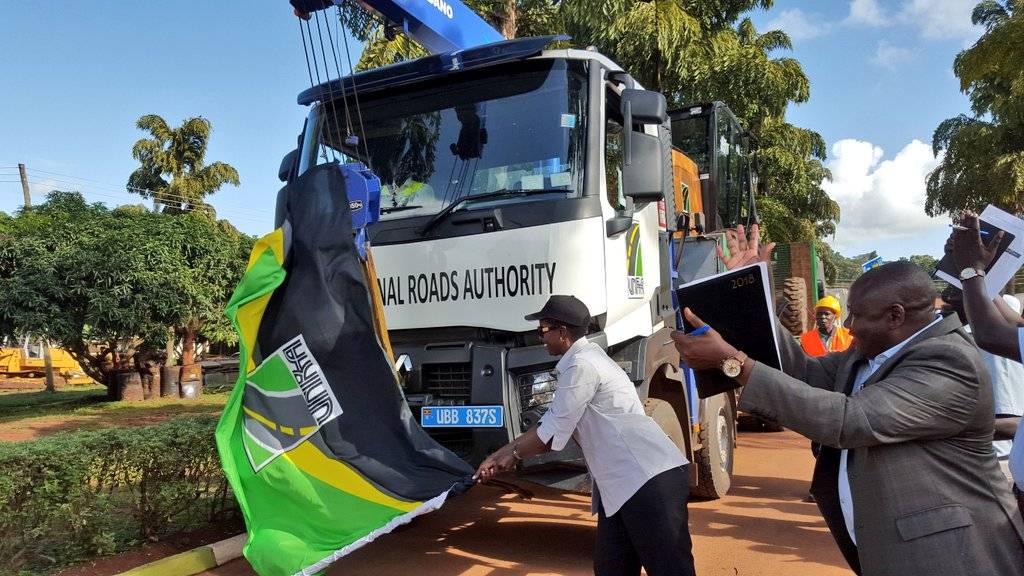
This resulted into an estimated saving of Shs 20 billion and also mitigated fines due to delay of procuring the supervising consultants.
By end of this financial year, 5 kilometers of Kitala Gerenge project shall be fully constructed and supervised using UNRA Engineers and equipment.
Similarly, UNRA staff have managed to draw some of the project designs which on top of saving government money has led to skills development and improved ability of the design team to review designs by providers to ensure value for money.
By June 2015, 247 kms of designs had been completed compared to 729 kms and 806 kms designed in 2015/16 and 2016/17 respectively. This brings the total kilometers designed todate to 1782Kms.
UNRA has also established the Survey and Documentation Department to enable land surveying services to be handled by in-house staff. Initially, all land surveying services were outsourced to external consultants.
As a result, in 2016, a total of 6 projects including 208 kms of road, 4 bottleneck swamps were surveyed using UNRA technical personnel. Thirteen (13) projects including 948kms of road, 5 ferry sites and 1 UNRA station were undertaken between June 2016 to July 2017 with an average turn-around time of 2.4km/day.
In 2015, the legal department of UNRA acquired a prosecution license and has since represented the entity in courts of law on numerous cases. Previously, UNRA outsourced such cases to private law firms which often had a humongous financial bearing on tax payers.
Figures indicate that the in-house law firm realized Shs 12.8 billion in the 2015/16 financial year when it acquired the prosecution license, and over Shs 40 billion in 2016/17 from concluded cases.
Procurement
The Justice Catherine Bamugemereire Commission which in 2015 probed the fraud in UNRA discovered several illegalities surrounding the procurement processes. These included amendments of contracts with disregard of the Solicitor General’s approval, failure to adhere to contract terms, over payments to contractors, payments for expired or non existent contracts among others.
And it was these problems that often resulted into high costs of road projects and delays in completing these roads.
However, due to the reforms instituted, the clearance of contracts by the Solicitor General which used to take months has now reduced to 2 weeks for over 80% of contracts cleared in 2015/2017. In 2016/17, this was further brought down to a week for over 85% of contracts.
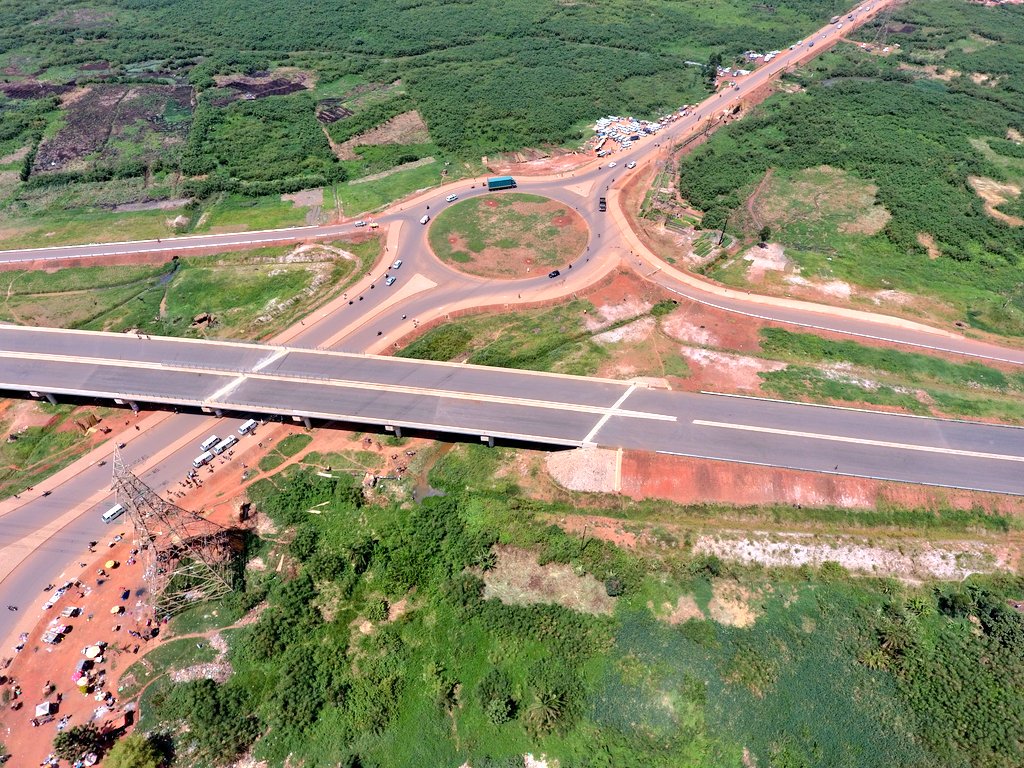
This is mainly due to the contract reviews by the UNRA in-house team and the engagements and working relations established with the Solicitor General’s office.
UNRA has made deliberate efforts to embed local content in its procurement processes. Prior to 2016, local materials for road maintenance were procured from “middlemen” or suppliers who used to charge UNRA exorbitant prices.
But after engaging PPDA, the new administration secured an Accreditation in accordance with section 40(A)(2) of the PPDA Act 2003 to procure local materials from local sources at agreed rates.
It also secured approval of mandatory sub-contracting to local companies to build and improve capacity of local contractors. This is intended to reduce risks in contracting non performing contractors, reduce lead time and enhance local participation in the procurement activities.
Once government rolls out the E-Government Procurement System in July this year, UNRA intends to fully automate its tracking system to improve on the procurement turn round time.
Quality assurance
Through regular internal audits, UNRA has conducted quality assurance on compliance to controls, quality of controls, effectiveness of controls, integrity of reports, value for money and safeguarding of assets.
Due to these audits, up to Shs 3.5 billion which the Authority previously spent on hiring services for technical audits from external firms has been saved.
UNRA used to spend about Shs 4.5 billion to carry out 20 technical audit cases/projects through outsourcing, but currently, it spends about Shs 940 million to carry out between 24 to 28 technical audit cases using own staff.
For other audits on internal controls, the entity used to spend over Shs 5 billion using own and outsourced auditors to carry out 30 cases compared to the current situation where 56 cases are handled using own staff at less than Shs 2 billion.
The pre-audit of the Interim Payment Certificates (IPCs) has helped in avoiding irregularities that could potentially result in financial losses of over Shs 3 billion in the past two financial years from 2015 to 2017.
Legal framework
Since the inception of UNRA a decade ago, till 2015 when Kagina took over the administration, no single regulation had been made as guided by the UNRA Act.
However, between 2015 and 2017, 3 regulations had been drafted through wide consultations and were later put into the national gazette. Currently, the UNRA guidelines that are in effect are; National Roads and Road Reserve Management, Ferries Management and Axle Load Management.
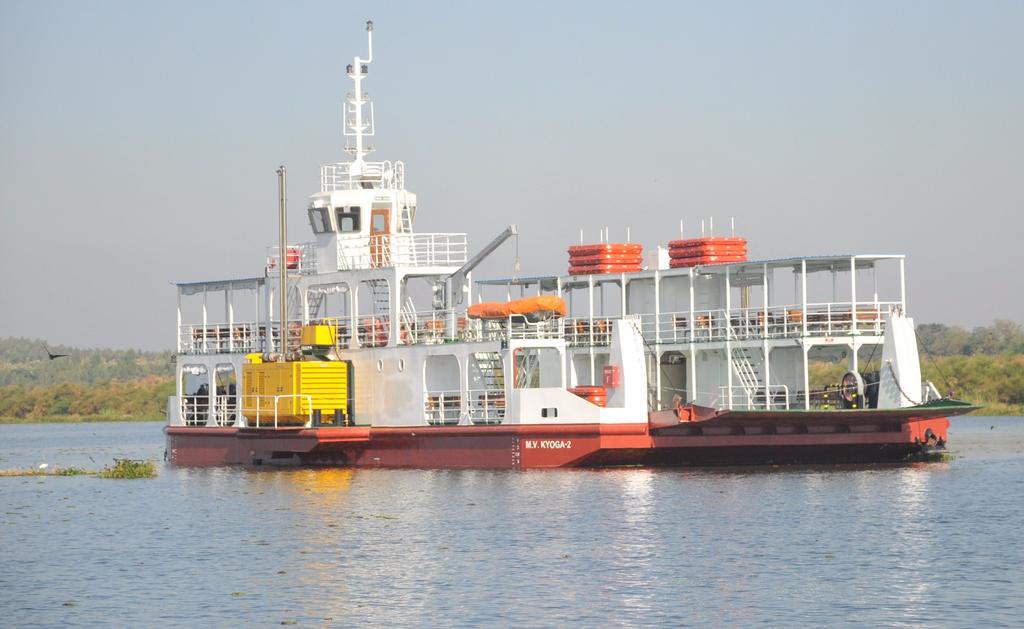
Numerous policies have also been approved including the Communication Policy, Fleet Management Policy, ICT Policies, Environment and Social Safeguards Policy, National Roads and Road Reserve Management, and Risk Management Policy.
All these strides notwithstanding, UNRA is still faced with some challenges, land acquisition being the most prominent among them. To date, some road projects are still stalled due to lack of consent by some of the land owners over compensation.
While funding has steadily rose over the years from Shs 705 million when UNRA was established in 2008 to Shs 2 billion in 2015 and the current Shs 3.8 trillion budget, there is still need for additional funding given the portfolio of works.
Issues to do with protracted procurement procedures and middlemen who meddle in the process to lobby for contracts also still stand, although they have been minimized compared to 5 years ago.
